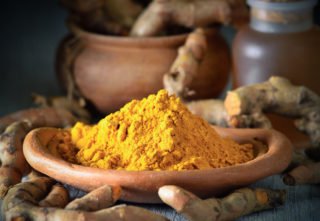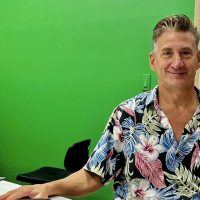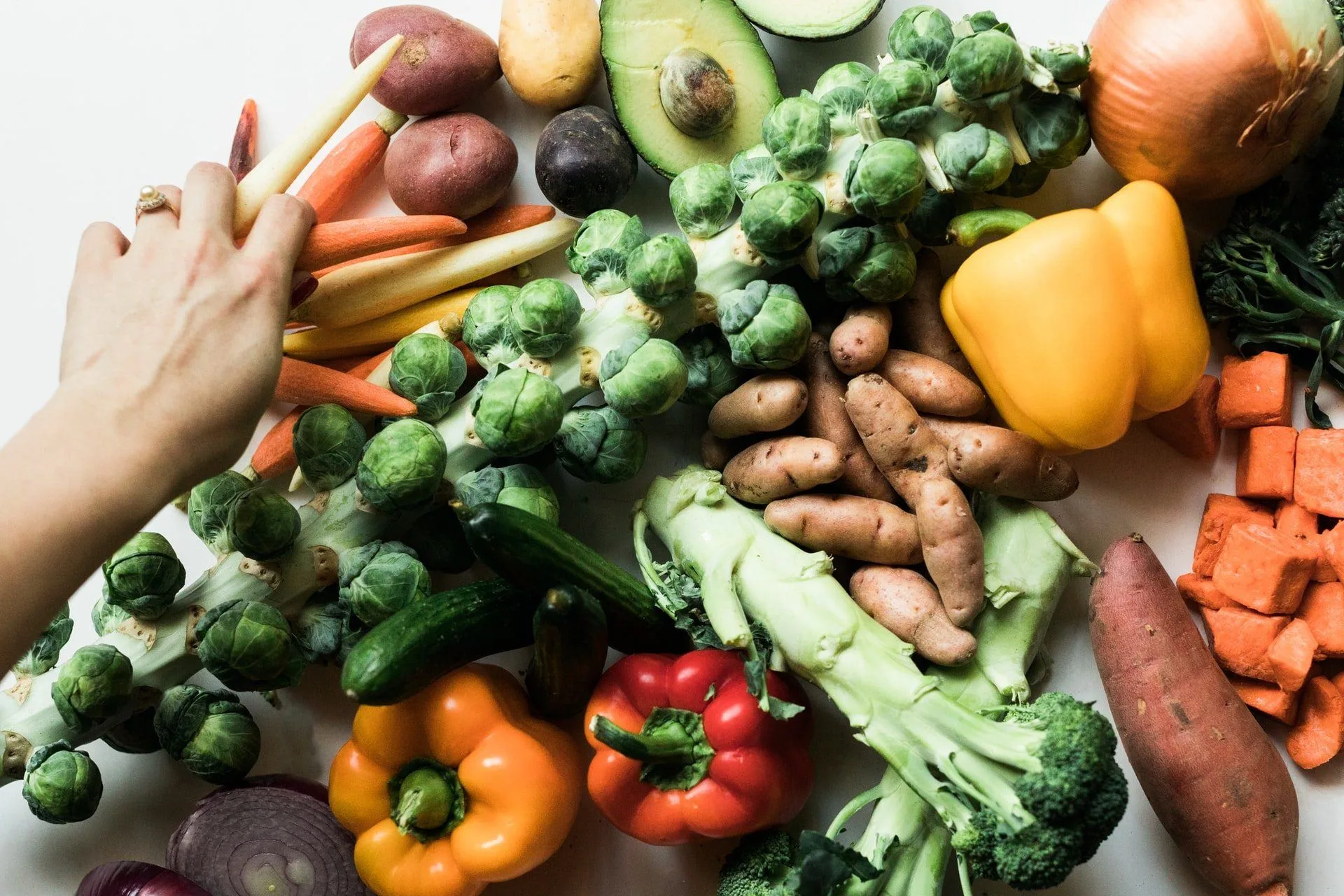As a geriatrician, I spend most of my time attending to folks who suffer from the diseases of old age. Whether it’s heart disease, arthritis, cognitive decline, diabetes, or macular degeneration, these are almost always chronic. However, there’s a silver lining to this dreary cloud – this is the secret. A healthier diet, exercise, and other lifestyle factors can help to prevent most of the afflictions I treat daily. By Professor Bradley Willcox.
The right food can help you live a happier, longer life
Of course, a big part of the secret is not smoking and getting regular exercise. However, what I’ve learned from studying the long-lived Okinawans is that eating the right food can be a prophylaxis that can thwart illness.
Consuming the right foods with the right micronutrients mitigates risk for age-associated disease by reducing oxidative stress. Research shows that oxidative stress is a principal mechanism of aging.
If you can enhance anti-oxidative protection and inhibit free radical production. This goes a long way to protect against oxidative damage. What’s more, eating the right food can modulate the very rate of aging.
What we’ve discovered is that certain micronutrients found in Okinawan sweet potatoes, turmeric, and marine-based carotenoid-rich foods, such as seaweed and kelp, are particularly potent in this regard.
In scientific terms, these nutrients upregulate the FOXO3 gene. This gene is a major nodal gene in aging-related biological pathways. These pathways, in turn, are associated with disease prevention.
So what should you be eating?
As a rule, Okinawans consume a lot of vegetables. This is one aging secret everyone should apply to their own health. However, turmeric, sweet potatoes, and other foods rich in marine carotenoids (found in local seaweeds, kelp, and certain fish) are particularly important. The compounds in these foods that are incredibly potent in stimulating the healthy aging process include:
- anthocyanins (in sweet potatoes)
- curcumin (in turmeric) and
- astaxanthin (found in marine-based foods and algae)
3 compounds you need to know about
Getting these three compounds from your food is easy. You can find Okinawan sweet potatoes and turmeric in many supermarkets.
You can further obtain a healthy dose of astaxanthin by eating salmon and other seafood with a pink coloration, such as shrimp. Astaxanthin is also available for purchase as a supplement.
A little-known secret: the Okinawan Sweet potato is chock full of phytonutrients that will help you live better and age better
The Okinawan sweet potato is not related or confused with the potato. Native to the Americas, this vegetable first showed up in Japan sometime between 1492 and 1605. The hardy plant grew well in Japan. Quickly, it became popular in a variety of Japanese dishes.
Sweet potatoes of all varieties are high in vitamin A, vitamin C and manganese. They are also a good source of copper, dietary fiber, vitamin B6, potassium and iron. Sweet potatoes are known to improve blood sugar regulation. Some studies have discovered significant antibacterial and antifungal properties.
The primary nutritional benefit, and the one for which Okinawan sweet potatoes are especially prized, is their high antioxidant levels. The antioxidant known as anthocyanin is the pigment that is responsible for the brilliant purple color of the flesh. It is the same pigment that gives blueberries, red grapes, and red cabbage their color.
Blueberries are well known for their high antioxidant levels. However, the Okinawan sweet potato actually has 150% more antioxidants than blueberries.
Turmeric
Another name for the bright yellow root is Indian saffron or the golden spice. Turmeric is a tall plant from Asia and Central America. Across the world, people use its bright yellow color as a dye.
The secret ingredient
Among its various nutrients, turmeric also contains compounds with medicinal properties, the most notable being curcuminoids. Of these compounds, the most important is curcumin. Curcumin is an active ingredient found in turmeric that has been well-researched. Research indicates it has excellent wellness-promoting qualities.
It contains important anti-inflammatory properties that can:
- Protect your brain’s health

- Reduce your risk of heart disease. Curcumin is just as effective as exercise at improving endothelial function.
- May reduce your risk of cancer
- Improve symptoms of arthritis
- Boost your BNDF levels, regulate mood and reduce depression.
- Prevent diabetes. Research has found that curcumin may help to manage as well as prevent diabetes.
- Improve your skin
As a supplement
Turmeric is also available as a supplement, as each pill contains up to 95% curcuminoids. Many people choose to buy their turmeric supplements online. If this is you, it’s significant to ensure that it is made from organic turmeric, free of GMOs and that it contains BioPerine as it helps to enhance curcumin absorption.
Astaxanthin
Astaxanthin is a red pigment that belongs to a group of chemicals called carotenoids. It occurs in certain algae and fish. It is what causes the pink-red color in salmon. Astaxanthin works as an antioxidant and helps to reduce free radicals present in the body.
As a supplement
You can take this carotenoid as a supplement, as it also has a lot of benefits for the eyes and skin. The key is to find a scientifically-formulated supplement. Read the labels and choose a product from a professional laboratory. Astaxanthin is recommended in the dosage range of 6 to 8 mg daily.
The secret of the FOXO3 Connection
What’s of particular interest to me as a gerontological researcher is astaxanthin’s ability to activate a variant of the FOXO3 gene beneficially. This gene is strongly associated with human longevity.
Astaxanthin, along with other marine carotenoids such as polysaccharide fucoidan, xanthophyll fucoxanthin have some amazing qualities, such as inhibiting cancer growth, fostering reduction in bad cholesterol and lowering triglycerides.
In a sense, these compounds trigger our biological systems into mimicking an ancient survival mechanism called caloric restriction. Caloric restriction has been unequivocally proven to make organisms live longer.
A secret powerful food combination
The good news is that eating your sweet potatoes, turmeric and astaxanthin really works. Our data show that Okinawans eating a traditional diet gained an additional 6% survival time from age 65 (1.3 years) versus other Japanese and an extra 20% survival time (3.6 years) versus Americans. Most notably, Okinawans gained almost a decade of additional disability-free life expectancy compared with Americans.
The less you eat, the longer you live.
It sounds counter-intuitive, but the less you eat (up to about 30% less than usual calories), the longer you live. As long as you maintain a diet adequate for micronutrients, that is. A diet that contains compounds that turn on caloric restriction biological mechanisms may also make you live longer and healthier.
How caloric restriction helps you to become healthier
In other words, if you can turn on the same genes that caloric restriction activates through the consumption of dietary compounds that mimic caloric restriction’s biological effects (“CR mimetics”), you may get the benefits of caloric restriction without the deprivation.
Our studies and those of others have shown strong support for this.
We’ve found that Okinawans eating a traditional diet, gained an additional 6% survival time from age 65 (1.3 years) versus other Japanese and an additional 20% survival time (3.6 years) versus Americans. Perhaps most notable is that Okinawans gained almost a decade of additional disability-free life expectancy compared with Americans.
The shorthand is that by stimulating the FOXO3 gene with the right foods and phytonutrients, the odds are you will live longer and healthier.
Click on this link for 7 reasons why you should add turmeric milk to your diet.
A sweet potato a day will keep the doctor away
We’re still early in the stages of research, but the evidence is very promising. We’re proving scientifically that the Okinawan expression nuchi gusui, ‘food is medicine’ is not just some meaningless platitude. Another longevity secret is now unearthed!
My suggestion is to follow the lead of the Okinawans. Eschew the apple a day and make it a sweet potato!
About the author
 Dr. Bradley Willcox is author of the NY Times best-selling book on healthy aging, The Okinawa Program,
Dr. Bradley Willcox is author of the NY Times best-selling book on healthy aging, The Okinawa Program,
Dr. Willcox is Professor and Director of Research, at the Department of Geriatric Medicine, John A. Burns School of Medicine, University of Hawaii; an Investigator, Honolulu Heart Program, Kuakini Medical Center; and a member of the Scientific Advisory Board of Cardax. Inc. Read his full biography below.



![women [longevity live]](https://longevitylive.com/wp-content/uploads/2020/01/photo-of-women-walking-down-the-street-1116984-100x100.jpg)










